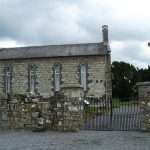Sermon for Good Shepherd Sunday, 26th April 2015
“I am the good shepherd” John 10:11
We can use the word “sheep” as an acrostic as we think about Jesus’ words, each letter of the word helping us to think about what he was saying to us.
“S” is obviously for “shepherd”. In Saint John Chapter 10 Verse 11, Jesus says, “I am the good shepherd. The good shepherd lays down his life for the sheep.” Jesus calling himself a shepherd makes sense to us as we look back on passages of Scripture like Ezekiel Chapter 34 and Psalm 23, but it may have sounded strange to those who heard him. Shepherds were on the edge of society. Living rough lives, they simply would have been unable to observe the rigour of the Jewish ritual and dietary laws. The hundreds of laws that governed every aspect of daily life were impractical to men who lived in the harsh environment of the shepherd. Shepherds were coarse; they were unclean; they would have been shunned by the respectable religious leadership.
As followers of Jesus, we should be prepared to be like him, to do what God expects of us rather than what we think other people might expect. Jesus talks about laying down his life for the sheep, what are we prepared to do to serve God’s people?
“H” is for “hired hand”. Verses 12-13 say, “the hired hand, who is not the shepherd and does not own the sheep, sees the wolf coming and leaves the sheep and runs away—and the wolf snatches them and scatters them. The hired hand runs away because a hired hand does not care for the sheep.” The flocks minded by the hired hands were not the fluffy white creatures of children’s picture books, they were rugged, wiry beasts, barely distinguishable from goats. The dangers they faced were numerous, a lack of food or water, attacks from wild animals, injury or death from falling in ravines, theft by those looking for a meal. The loss of sheep was so taken for granted that those hired to care for them would not have been unduly perturbed if their flock was reduced in number now and again. Jesus himself acknowledges that those paid to care for flocks often did so in a casual an uncaring way, that they might run away from difficulty.
The hired hand was someone who did what was convenient, who put his own comfort first. Does such a criticism apply to us? Do we serve God when it is convenient and turn our backs on him when it is not?
“E” is for “even”. Jesus says in Verses 14-15, “I am the good shepherd. I know my own and my own know me, just as the Father knows me and I know the Father. And I lay down my life for the sheep.” The words “just as the Father knows me” appear as “even as the Father knows me” in some translations. Jesus is saying that he knows us, even as his Father knows him; his relationship with us is as close as that of a father and son, and not just any father and son.
When we think of that word “even,” we should think about how close we are to God. In our daily life, do we have a sense of that closeness?
“E” is for “edge”. In Verse 16, Jesus says, “I have other sheep that do not belong to this fold. I must bring them also, and they will listen to my voice. So there will be one flock, one shepherd.” Jesus is concerned with those who do not belong to the fold, he is concerned with those who are out on the edge. Jesus’ response to those on the edge is to see their rescue as taking priority; he tells a parable where ninety-nine sheep are left in order to go to seek out the one that is lost.
What does that say to us? If Jesus is concerned about those who do not belong to the fold, about those who are on the edge, then shouldn’t we also be concerned? Shouldn’t we be worried about those who are missing?
“P” is for “power”. Jesus tells his disciples in Verse 16-17, “For this reason the Father loves me, because I lay down my life in order to take it up again. No one takes it from me, but I lay it down of my own accord. I have power to lay it down, and I have power to take it up again. I have received this command from my Father.” Jesus is saying that he is in command of the situation, that he is choosing the way that lies ahead. Jesus is saying that the way of the good shepherd is the way of one who has the power to lay down his life and take it up again.
Jesus is saying that this is the way God has chosen, that we should have confidence that God works his purposes out. Have we that confidence? Have we confidence in God’s power?
Shepherd, hired hand, even, edge, and power – each of them asking about our response to the good shepherd.


Comments
Sermon for Good Shepherd Sunday, 26th April 2015 — No Comments
HTML tags allowed in your comment: <a href="" title=""> <abbr title=""> <acronym title=""> <b> <blockquote cite=""> <cite> <code> <del datetime=""> <em> <i> <q cite=""> <s> <strike> <strong>